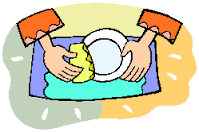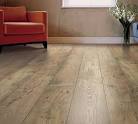Cleaning Tips and Tricks
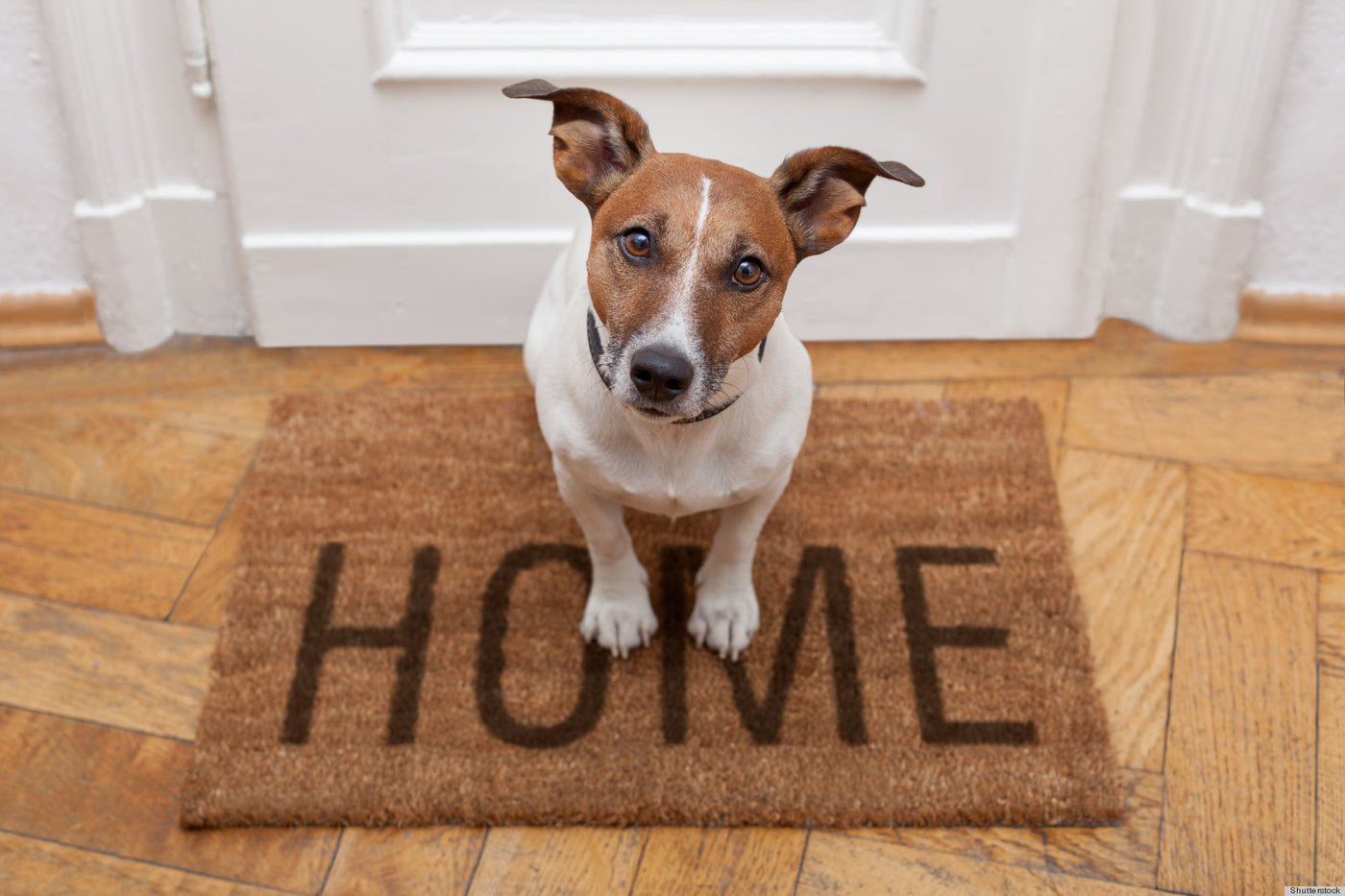
Keeping A Pet Home Human Friendly 0
If you share your home with a furry friend, the good news is studies say you're probably happier and healthier. The bad news? Your house probably isn't.
But fear not! We've compiled our top tried and tested tips to keep your pet-friendly home feeling fresh.
1. Keep your pets clean
If Fido behaves like he is part-warthog on every walk, it's time to set up a pet grooming routine. It sounds obvious, but dirt removed through grooming is dirt not lying around the house. A quick wash down with plain water can make a world of difference, and you should keep damp dogs confined to one area, preferably with an easy to clean floor like the laundry room. Better yet, thoroughly dry them afterwards to avoid any eau-de-wet-dog. From time to time you'll need to give them a proper wash with pet shampoo. Depending on the breed they may also require trimming or de-shedding; shedding culprits are any long coats as well as water dogs like Labradors, and Jack Russells. In Africa you don’t need to feel bad - get that coat clipped! There are many mobile dog groomers who will come do it in your garden.
Psssst: Try our awesome pet shampoo!
2. Upgrade your sofa
If you can't bear to push your pooch off the couch it might be time to upgrade your current sofa. The wrong material can act like a hair magnet, hold undesirable odours and show up the slightest stain. While scouting your new sofa, look for leather or tightly woven materials, ideally in a similar shade to your pets. If you can't spring for a new sofa, add a pet-friendly throw which can be chucked in the wash when needed, or see if you can have the fabric scotch-guarded for protection.
3. Buy a quality vacuum cleaner
Look for a pet appropriate vacuum cleaner to pick up pesky hairs and help banish odours. You'll need extra strong suction, quality filter, and a good brush action to pull hair out rather than just glide over the surface. Consider the type of flooring you have in your home and if your pet goes on the furniture, look for one which can tackle upholstery too. If you've got yourself a shedder, you'll need to vacuum daily to keep on top of things, but it can be a five minute daily job as opposed to an hourly one every week.
Pssst: Be sure to regularly clean out the filter too as a hair and dirt clogged filter will spread the smell of pet hair wherever you vacuum. Ah, pet ownership!
4. Set up a dog cleaning station
Your art deco table and Victorian hat rack might look like the perfect entranceway, but not when you're armed with a muddy dog. Of course, if you have a laundry room, set up your dog cleaning station there. But if not, simply tweak your entranceway. We're talking a heavy duty doormat, easily accessible dog towels and wipes, and a water spray bottle to clean muddy paws.
Pssst: Maybe keep a couple of treats there, too.
5. Regularly clean your pet's things
Pet beds, toys and even leads pick up that strong dog odour and all need to be cleaned regularly. Check if they are machine washable, otherwise you can wash by hand in the sink. Save this chore for a sunny day and allow them to dry outside where the sun will help kill bad odours.
Psssst: We recommend our great pre-wash and maybe some sanitiser.
6. React quickly to accidents
Life with pets means the odd accident. Our advice? Act fast and use an enzyme-based cleaner to minimise smells.
Psssst: Try any of our amazing cleaning products, for outdoors, tiles, or carpets.

Walking down the pet bed aisle, it's easy to get lured in with decadent design and extra fluffy lining. But don't be fooled – they will be a nightmare to clean. Instead go for a water resistant, easy to wipe down option. Give it a quick wipe down once a week and leave it out to air in the sun whenever possible.
8. Air your house

Persistent pet smells affecting the energy in your home? Now that spring is here open your windows and let some fresh air in. Even on cold days, a 10 minute blast of fresh air works wonders at deodorising.
Psssst: Try our home deodorisers to keep your home smelling lemony fresh!
- Bold Apps

Remove Gentian Violet by following these steps: 0
1 Soak in Detergent & Vinegar Solution.
2 Agitate occasionally.
3 After 30 minutes,
4 Rinse with water.
5 Allow to dry.
6 Apply Alcohol to stain and cover with Absorbent Material dampened with Alcohol.
7 Let stand as long as any stain is being removed.
8 Change pad as it picks up stain. Press pad hard onto stain each time you check it.
9 Keep stain and pad moist with Alcohol.
10 Flush with Alcohol.
11 Allow to dry.
12 Soak in Detergent & Ammonia Solution.
13 After 30 minutes,
14 Rinse with water.
- Matthew Smith
- Tags: advice cleaning tips life hack Moms Tips
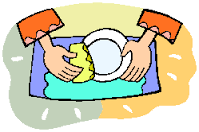
Keep your business compliant & hygienically clean 0
Cleaning & Sanitising are not the same thing.
Chemicals – what is the difference?
• Detergents – soap in a liquid form that attracts and washes away grease, dirt and debris from the surface. Detergents do not kill bacteria.
• Sanitisers – chemicals that are used after detergents. Sanitisers will kill and reduce the number of bacteria and spores.
• Disinfectants – common household cleaning products that are suitable for toilets and floors but not on food contact surfaces. They must not be used as sanitisers.
Cleaning is the process of using detergent and water to remove visible dust, grease, dirt, stains and odours from all surfaces, fixtures (i.e. benches and

How To Save The Planet Without Straining Yourself 0
Let’s be honest: we all want to save the planet, we just don’t want to be inconvenienced by it.
And then… I had a child. And now I am realising we are wrecking the place that they need to grow old on, and that is not a debt they should inherit from us.

The time is rapidly approaching where we will hit the point of no return, and then it will be a case of too little too late. Humans are damaging the very eco-system we depend upon to support us, and it is imperative that we do as much as we can immediately to halt this process. Luckily, there are loads of really easy ways that you can make a positive impact without having to subject yourself to local transport (which we SHOULD do, but in SA… er, no). In fact, they are quite fun!
Eat vegetables and locally-sourced meat
(Pic: Bryanston Organic Market)
Industrial farming practices are not only harmful to individual animals, they're unsafe for the planet itself. Factory farming produces a lot of air and water pollution, and with the rise of organic markets there is no excuse: they are cheaper, healthier, and better for the planet! Plus supporting local is lekker. You can address this issue in a personal way by doing the following:
- Eat more vegetables. This simple change is a way of opting out of the factory farming industry.
- Question where your meat comes from and buy only locally-sourced meat from a small farm.
- Avoid eating beef. Cows emit lots of methane, a dangerous greenhouse gas, and other pollutants. Try to reduce your beef intake and opt for other types of meat.
- Eat sustainably-caught fish. The oceans are being depleted of large fish populations due to overfishing and pollution. Up to 90 percent of the ocean's large fish are now gone. Eat only fish that is in season and caught using sustainable practices.
- Not sure which fish is fine? Add the number 079 499 8795 to your cellphone contacts and simply text the name of a fish to this number to receive an immediate message telling you whether to tuck in, think twice or avoid completely.
Produce less waste
Everything you throw in the garbage, tie up and take out to be collected is going to end up in a landfill. Plus, all that trash - plastic, paper, metal, and whatnot - was likely manufactured using unsustainable practices that hurt the health of the earth's land. By making less trash, you can reduce your impact. Try making these changes:
- Buy products that you can reuse. Get glass containers instead of flimsy plastic ones, for example.
- Don't use plastic bags, buy cloth and keep them in your car to reuse every shopping trip.
- Avoid products with several layers of packaging when only one is sufficient. About 33% of what we throw away is packaging.
- Use reusable plates and utensils instead of disposable ones, and use reusable containers to store food instead of aluminum foil and cling wrap. DON’T DRINK BOTTLED WATER! Go glass!
- And don’t use straws, they are the biggest source of litter in our oceans.
- Buy rechargeable batteries for devices used frequently, and when you DO have to chuck old batteries (like your car’s!) dispose of it properly.
- Use email or texting as a substitute for paper correspondence and save the trees, man!
- ...if you MUST use paper, go recycled, and print on both sides.
Recycle
But some things we cannot cut out of our lifestyle, so what you cannot avoid you should recycle. You can help reduce pollution just by putting that Coke can in a different bin! If an office building of 7,000 workers recycled all of its office paper waste for a year, it would be the equivalent of taking almost 400 cars off the road. There are many local municipality recycling initiatives, like the Ronnie Bag, which will take all your recycling and sort it for you, but if you live in a complex consider hiring a recycling company (like www.ecomonkey.co.za) OR sort your own recycling and drop off at a school or shopping centre near you. The good karma will come back to you!
Conserve water
Cape Town should be a warning to us in other parts of the country. Wasting water is one of the biggest ways individuals impact the health of the planet, and taking measures to use less water is something you can start doing right away. If you live in an area with a water shortage, this is even more important for the health of your region's environment. Try to check off as many items as possible from this list:
- Check and fix any water leaks. A leaky tap or toilet can waste a lot of water.
- Install water-saving devices, like a low-flow showerhead to start.
- Don't wash dishes with the water running continuously. Use a method that requires less water to get the dishes clean.
- Turn off the washing machine's water supply to prevent leaks. It doesn't need to be on all the time.
- Replace old toilets with new ones that use a lot less water.
- Wash and dry only full loads of laundry and dishes. Doing a half-load wastes water.
- Don't use too much water to water your lawn - consider installing a tank to catch gutter run-off during the rainy season and use that, OR create a water-wise garden.
- Don't leave the tap running while you brush your teeth.
Compost
Think about how much trash you make in a year. Reducing the amount of solid waste you produce in a year means taking up less space in landfills, so your tax bucks can work somewhere else (NOT Nkandla). Compost makes a great natural fertiliser so you can make that veggie or herb garden that you’ve always wanted, or just keep your lawns and flowerbeds healthy. Composting is easier than you think, and you can get your complex or neighbours involved too to make management take less time and make more fun!
Besides all the amazing benefits that the planet will reap from our proactive passion, there is one thing that we don’t count on: that warm, fuzzy, altruistic glow in our conscience of doing good, and the good karma that will come with it. Make some changes today, and let’s see the benefits in the years to come.

- Georgina Roberts
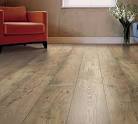
Caring for your Laminate floor. 0
Laminate floors require a special kind of maintenance to keep them gleaming.
Our top tips.
Protect ‘Em
- No stiletto heels on laminate. Pop those foxy shoes on at your front door on your way out!
- Wipe up wet spills immediately. Water + Laminate = Disaster
- Matthew Smith
- Tags: advice cleaning tips Laminate floors Microfibre

Say no to impossible stains on your laundry! 0
Here are the ABC's for taking care of your garments when they have stains.
Often stains can be stubborn, but following this guide, you will see that many can be eliminated.
General Tips
- Do not iron stained laundry as you will only settle them in.
- The immediate stain removal action taken is very important: wash the stain out with cold water immediately; this will prevent the stain from settling in.
- If a stain resists, do not experiment. Leave the garment in the hands of a professional.
- Use a good detergent to help eliminate any stains on your garments, and don´t forget to use Sta-Soft according to your laundry´s needs


